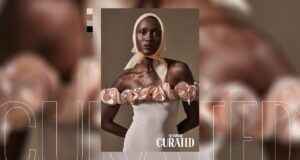The best mattress protectors are essential for extending the life of your mattress as well as for maintaining good sleep hygiene. These layers might look thin, but they’ll protect your bed from spills, stains, and general wear and tear. They’ll also offer a hypoallergenic, breathable, comfortable, and even cooling layer for your sleep.
Even though the best mattress protectors should prioritise protection, it’s important that they do much more. I’ve been testing a range of different options, from waterproof mattress protectors that suit pet and family homes right through to hypoallergenic, organic, eco-friendly bamboo and wool protectors too.
Ultimately, choosing the right one for you depends upon a few factors. Synthetic or natural materials — synthetics are cheaper, lower maintenance, and often waterproof, but they aren’t always very breathable. Those who suffer from night sweats or allergen sensitivities will be better off opting for a natural fibre like bamboo or cotton.
You’ll also want to think about the price and texture. Quilted mattress protectors are plusher and more luxurious, but if you’ve already invested in one of the best mattress toppers, you won’t need any extra padding. Waterproof toppers can be useful if your pets or children have accidents at night, but some can crackle and feel like plastic. That’s why I tested every option on the market. Now I can, hand on heart, promise that each of these mattress protectors will help you towards better sleep, whether you want yours to be cooler, softer, fresher, or all three.
Quick links
If you want a quick tour around the six best mattress protectors on the market, here you go. There’s an option for every kind of sleeper, so when you see one that you like the look of, you can scroll down to read the full details of my in-person testing.
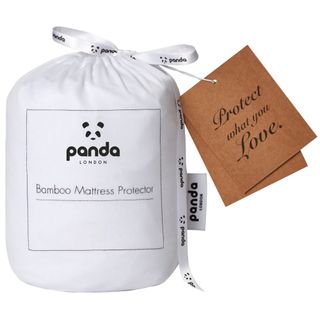
Panda London Bamboo Mattress Protector
Best overall
This hypoallergenic option is perfect for sensitive skin. It’s crafted from bamboo, meaning that the fibres naturally create a cooling, moisture-wicking layer between you and your mattress. It’s also waterproof if you have any spills.
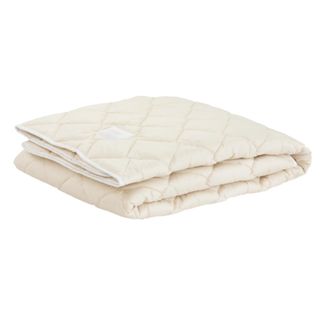
Woolroom Washable Mattress Protector
Best natural
Crafted from unbleached organic cotton and Chatsworth wool, this uber-luxurious option is kind to your bed, skin, and the planet. It’s sumptuous to lie on, cooling, and comfortable too.
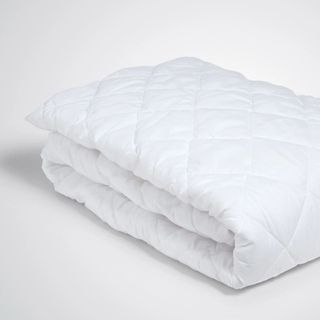
OTTY Waterproof Mattress Protector
Best for night sweats
Designed to help you towards cooler sleep, this thin waterproof layer works hard. It has a slight plastic feel at first, but after a few washes, it does a wonderful functional job.
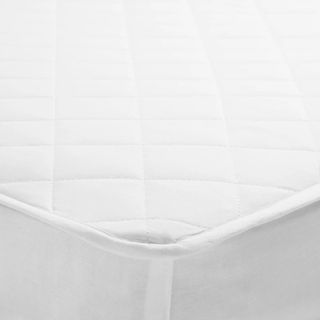
John Lewis Soft Touch Mattress Protector
Best basic
If you want something simple to protect your bed, this will do a wonderful job. It’s soft to touch, really comfortable, and hypoallergenic. The synthetic yarn makes this easy to clean and dry for a quick bed refresh.
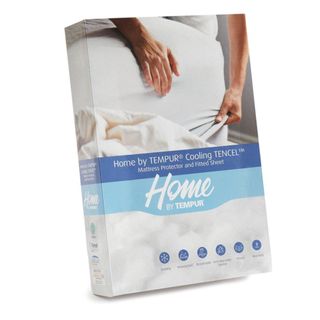
Tempur Tencel Mattress Protector
Best hypoallergenic
Designed for delicate skin, this protector is super soft to touch. It’s hypoallergenic, waterproof and surprisingly cooling. Tempur uses THERMIC capsules and TENCEL fibres to help with temperature regulation as you sleep.
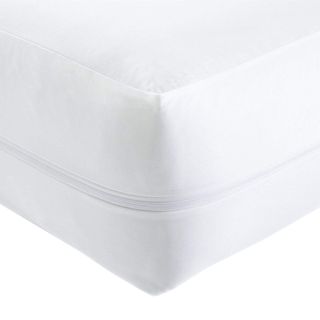
Soak & Sleep Anti-Bed Bug Mattress Encasement
Best waterproof
Rather than a protector, this calls itself an encasement, because it zips around the entirety of your bed. Designed to help with any spills or bed bugs, it keeps your mattress safer than any other option — it’s still soft and easy to sleep on.
The 6 best mattress protectors, tested for cooler, more comfortable sleep
Why you can trust Woman & Home
Our expert reviewers spend hours testing and comparing products and services so you can choose the best for you. Find out more about how we test.
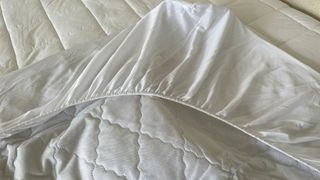
(Image credit: Future)
I’m still sleeping on all six of these (in rotation) and testing the latest releases. For almost a year, these have been the six best mattress protectors on the market. I’ll give you the highlights here, but you can get deep into the details further down the page if you want to.
Best mattress protector overall
Made from 70% sustainable bamboo and 30% cotton, Panda London’s take on this bedroom must-have is a great choice for anyone who is trying to live more sustainably. Even its packaging creates minimal waste: it arrives tightly rolled up inside a bamboo drawstring pouch, and I love the on-brand panda-patterned ribbon. Cute and eco-conscious.
Far from being ‘just’ the material it’s made from, the bamboo is a key selling point that influences every detail of this mattress protector. Bamboo is a natural repellent to irritants such as bed bugs and dust mites, and it also boasts hypoallergenic properties, meaning it’s a great option for those with sensitive skin. Bamboo is also a natural temperature regulator, meaning the mattress protector will keep your bed at a ‘just right’ temperature that even Goldilocks would be impressed by.
I tested it on a King-size bed and it generously reached right around my 35cm deep mattress and topper. The first thing I wanted to explore was Panda London’s claim that the mattress protector was totally silent (it was—there wasn’t a single rustle to be heard), while the second was its waterproof credentials. The protector is designed with a layer of Panda London’s very own Nano TPU™ technology, which keeps the product waterproof—a claim that stood up even when I poured a glass of water onto it.
You can find out more in my full Panda London Bamboo Mattress Protector review.
Best natural mattress protector
I’m a firm believer that when you invest in your rest, it should be natural. You’re spending one-third of your life on your mattress and so you won’t want a protector that’s throwing out chemicals and irritants into the air. That’s why the Woolroom Protector claimed this spot. It’s the antidote to all cheap, suffocating mattress protectors out there. This is beautiful, from the inside out.
Woolroom deliver every part of the luxury experience with their protector. It arrives in a robust bag, crafted from unbleached organic cotton. You can use this for storage of the topper if it’s not in use, or for anything else that needs packing away. The generous dimensions hugged my kingsize bed perfectly and I could actually feel the plush quilting, even through my sheet. It’s rare that a protector offers some extra comfort, but this actually does.
The secrets behind the hypoallergenic, comfortable, cooling properties lie in the craft of this protector. The outer casing feels cool and soft to the touch, thanks to the organic, unbleached cotton then, the protector is stuffed with 250 gsm of traceable, machine-washable wool that’s sourced from the Chatsworth Estate. Not only does this mean that you get an ultra-organic-looking mattress protector, you also get to benefit from all the naturally cooling, hypoallergenic properties that wool and cotton boast. Yes, wool is one of the best ways to stay cool when you sleep. For the first time ever, when I reviewed this mattress protector, I had to add another section to do justice to this kind of composition.
All three of the writers on our Homes and Lifestyle team sleep on this protector, which says a lot about how good we think it is. My only wish, if I was granted one, would be to reduce the price of this. I’m not surprised that it’s expensive, but I that’s the only reason that I couldn’t give this the top spot. Not everyone is willing to splurge £150 when they could spend £20.
You can find out more in my full Woolroom Deluxe Washable Wool Mattress Protector review.
Best mattress protector for night sweats
If you suffer from night sweats, there won’t be a better combination than a mattress protector that is both cooling and waterproof. Whilst plenty of the options on this list can boast one, the other, or both, this is the most deserving of the spot. Here’s why.
The super soft quilting promises an extra layer of cooling, and protective cover over your mattress. It’s crafted from bamboo microfibre technology that is designed to improve the airflow around your skin, rather than synthetic materials, which tend to insulate. The best part about bamboo like this is that it’s also really durable and naturally hypoallergenic too.
I tested the waterproof technology, once on purpose (I poured a glass of water on the topper) and once by accident (I spilt my coffee in bed). Both times, the OTTY proved itself to be an incredible topper. Given how effortlessly this repelled water, I was also keen to see how it would handle me, a hot sleeper. Sure enough, the fabric made for a perfect recipe for ridding (or lessening) the intensity of night sweats and hot flushes. It isn’t going to rid you of them, but it’s extremely rare for that to happen. The only time that I’ve felt actively cooled was on the Eight Sleep Pod 3, which runs cool water underneath you in the night.
Even though it feels plush, this is still thin and lightweight. I found it easy to clean after my coffee disaster. Even on regular washes, it’s quick to freshen up and dry. All in all, it’s an excellent buy.
You can find out more in my full OTTY Waterproof Mattress Protector review.
Best basic mattress protector
Whilst most of the toppers on this list won’t cost you more than £50 (save for the Woolroom), none of them come at a price that’s as competitive as £18 for a single and £34 for a kingsize. That’s unbelievably cheap, but when it’s part of John Lewis’ basics range, you don’t need to lose sleep. They’re a reliable place to go for budget-friendly basics.
I was surprisingly pleased with just how soft this felt both to touch and to sleep on. The quilting is plush, without overkill, and it’s enough to have an impact on the overall feel of the bed. The corners reached nicely around the edges of my mattress, so getting it on and off is an easy job too.
The most controversial aspect of this protector is the fact that it’s made from polyester. On the one hand, that makes this incredibly easy to clean and really quick to dry. If you need a speedy bedding refresh, this is the one. However, it’s not as breathable as the cotton and bamboo alternatives on this list, which makes sweaty work for hot sleepers.
So, if you want a low-maintenance option to use all year round, this is great. Just note that it’s not the most technically skilled option out there.
You can find out more in my full John Lewis Soft Touch Washable Quilted Mattress Protector review.
Best hypoallergenic mattress protector
If you’re lucky enough to own one of Tempur’s mattresses, you’ll already be familiar with the brand’s bedding quality. While they’re designed to best fit Tempur mattresses, they can be used on non-Tempur mattresses, too.
Designed to keep both spillages and dust mites at bay, this deceptively thin mattress protector is more than capable of keeping your bed in tip-top condition. I tested it by pouring a glass of water directly onto it and were impressed to discover that the mattress underneath remained bone dry.
Thanks to its ‘intelligent membrane’ design, it claims to be one of the thinnest mattress protectors available to buy today. On the downside, that means for the price you’re paying, it doesn’t quite compete with that quilted comfort that other mattress protectors can offer; however, on the upside, I didn’t even feel like I was lying on anything, which can only be a good thing. This is a big boon if you want a waterproof mattress without any of the cracking and noise at night.
It can be washed an estimated 100 times, and it can also be tumble-dried, too. I have only washed it once, admittedly, but found the mattress protector retained its stretch, dried quickly, and came back refreshed with zero negative impact.
You can find out more in my full Tempur Tencel Mattress Protector review.
Best waterproof mattress protector
This mattress protector sells itself as an anti-bed bug encasement, promising to protect your sleep essentials from your worst nightmares. This thin protector wraps around all sides of your mattress and can be closed with a zip, so you’ll be able to keep your mattress from dust mites, mould, pollen, bed bugs and any accidental spills.
I’ve tested the waterproof capacity of this with coffee, red wine, and water. I poured 500ml of each onto the bed and they stayed sitting on the jersey-and-TPU composition as if it wasn’t even a bed. It’s brilliant.
I’m also that person who worries about every eventuality: moths in my wardrobe, bed bugs in my bed. You know the drill. These aren’t indicative of poor hygiene. For example, bed bugs are often found in mattresses that have been used by multiple people and their rash-inducing bites are grim. If you never want to experience this, the Soak & Sleep encasement can protect against it.
The only downside of covering all bases is that this rustles a little at night, which is common amongst most waterproof protectors (no others on this list though). It’s also not quite as breathable and cooling as other options, but that’s the price you might be willing to pay to keep those pesky bugs at bay.
You can find out more in my full Soak & Sleep Anti Bed Bug Mattress Encasement review.
How we test the best mattress protectors
At woman&home, we follow a rigorous process in order to find the best mattress protectors on the market. We don’t just unbox the protector and give it a squeeze, we spend months researching, doing geeky deep dives into sleep science, and then sleeping on these protectors. In fact, we keep sleeping on all the protectors in this guide, so that we can keep you up to date on all the latest updates and long-term information that it’s good to know about.
When we look at and test mattress toppers, we are essentially assessing the below factors. If there’s anything else that we feel is relevant, of course, we will let you know about that too. However, these are the main points we always cover.
- Material: Mattress protectors come in a variety of different materials such as wool, cotton, bamboo and polyester. When testing mattress protectors, we consider the materials used and what they feel like to sleep atop – is the cotton soft and breathable? Is the mattress protector hypoallergenic?
- Sounds: Again, different materials are going to cause different outcomes here and you don’t want bedding that makes noises as you move around. Waterproof mattress protectors are usually made from polyester, which is more likely to have a louder, ‘rustling’ sound than, say, wool or cotton.
- Waterproof: Not every mattress protector claims to be waterproof, but it’s still important that yours can protect your mattress from spills. We pour 500ml of water over every topper we test and then check on it for five minutes (about the time you’d need to mop up) to find out whether it seeps through to the mattress. Sometimes, if it is waterproof, we’ll get a little daring and try wine or coffee spills
- Care: The majority of mattress protectors will be easy to clean and dry, but certain materials will need a higher level of care – a wool mattress protector may need to be washed on a particular setting in the washing machine, whereas other materials can easily be washed with the rest of a load and can usually be tumble dried, too.
- RRP: Purchasing a mattress can often be a sizable investment, even before you get to buy the accompanying bedding, pillows, duvets, mattress toppers and/or protectors. The protectors we tested had to provide good value for money and be a worthwhile investment when it comes to the features offered.
If you want to find out more, you can visit our dedicated page for how we test mattress protectors.
How to choose the best mattress protector for you
There are a range of different factors to consider when investing in a mattress protector. Some questions you should consider when shopping are:
- Is it waterproof? Of course, the best mattress protector is the one that will defend your mattress against leaks and spillages—but depending on your needs, it might be more important for you that the protector is made from a soft, breathable material. This brings us to our next point…
- Is it breathable? Mattress protectors should be breathable, helping to regulate body temperatures and ensure a restful night’s sleep, without sweating or overheating being too much of an issue.
- Is it easy to clean? If your mattress protector gets dirty, you’re going to want to clean it. Knowing that it can be popped in the washing machine (and in some cases, the tumble dryer, if you have one) will make things a lot easier.
- What is it made from? Another important thing to consider is the fabric used. We’d recommend natural, breathable fibers such as cotton, as this will allow air to move freely through the mattress, preventing moisture from building up over time.
- How ‘deep’ it is? Always check that the mattress protector will be deep enough for your mattress. Some mattresses are now over 30cm deep, and the average depth is now 24cm, some 3cm deeper than the average from only a few short years ago.
FAQs
What are the different types of mattress protectors?
There is a wide range of mattress protectors available to buy, with options to suit almost every type of requirement and lifestyle. These can include:
- Sustainable mattress protectors, made from materials like bamboo or ethically-sourced cotton.
- Anti-allergy or hypoallergenic mattress protectors, which can defend against dust mites and bacteria.
- Temperature-regulating mattress protectors, which are ideal for warmer sleepers.
Though mattress protectors generally all work towards the same goal, there are different types of protector that are better suited to various needs. Theresa Schnorbach, Sleep Expert at Emma, tells us that “while cooling protectors can help to stop overheating at night, fleece or high-pile mattress protectors offer comfort and warmth. If it’s comfort you’re looking for, you could consider a mattress topper instead. Like a protector, a topper can be easily removed and washed to help prolong your mattress’s life – however they usually do not offer the same level of waterproofing”.
Is it worth getting a mattress protector?
A mattress protector can help regulate temperatures, defend against allergies, protect your mattress (and topper, if you have one) from spills, and also enable your mattress to last longer. Doug Ralph, owner of Your Sleep Better Store, says: “While it is possible to use a mattress without a protector, using one can help protect your mattress from wear and tear, spills, and stains”. If you’re wondering how to clean a mattress and worried about any stains that could compromise the warranty of your mattress, a protector could help put your mind at ease.
He adds, “If you have allergies or sensitivities to dust mites, a hypoallergenic mattress protector can help reduce your exposure to these allergens. This means less waking up with itchy or red skin and eyes, and less disrupted sleep. I also recommend mattress protectors for people who struggle to sleep, as some models are designed to help keep you and your mattress cool, or add an extra layer of cushioning that can support the body”.
What material is best for a waterproof mattress protector?
A waterproof mattress protector will safeguard your bed from spills and moisture. It’s especially useful for a child’s bed, along with adults who tend to overheat or struggle with incontinence.
Schnorbach explains that “to protect against liquids you need a waterproof layer – this usually comes in the form of a plastic-based membrane on fabric such as polyester, with a polyurethane backing. This material needs to be thin enough to be breathable and avoid making a rustling sound that might disturb you in your sleep”.
It’s not enough for a mattress protector to call itself waterproof – for that kind of protection, you’ll want to make sure it’s constructed from any of the following materials:
- Polyurethane: This thin plastic often serves as a barrier between moisture and the mattress. It’s also considered a safer alternative to vinyl (or polyvinyl chloride, also known as PVC), which has been linked to health problems. On its own, polyurethane is not comfortable to sleep on, so it’s often layered beneath a softer material.
- Cotton: Cotton is soft, breathable, and very absorbent. It’s an ideal choice for hot sleepers as cotton’s moisture-wicking capabilities mean they’re less likely to wake up in a sweat.
- Bamboo: Bamboo is another breathable, highly-absorbent natural fiber. It’s also hypoallergenic, so it’s a great option for anyone with allergies.
- Tencel (or Lyocell): Tencel is made of cellulose fibers. It’s extremely soft and cooling, so it’s recommended if you overheat at night.
- Polyester: This synthetic material is cheaper than natural fabrics and easier to clean, too. However, to enhance the feel and absorbency of polyester, it’s often blended with cotton or another natural material.
How often should I wash my mattress protector?
In an ideal world, you’ll wash your mattress protector fortnightly, but there are always terms and conditions, such as what else you have on top of it; how many people are sleeping on it; and what the care instructions are. We’ve done a deep dive with the experts into how often you should wash your mattress protector as well as how to do it.
Do I need a mattress protector or a mattress topper?
I’ve been testing the best mattress protectors alongside the best mattress toppers and, personally, I’d say that you need both. Mattress toppers are designed to enhance the comfort, feel, and support of your main mattress. Protectors are supposed to keep your topper and main mattress clean and healthy whilst offering a light, breathable layer too. If you want to find out more, you can visit our mattress topper vs mattress protector deep dive.


